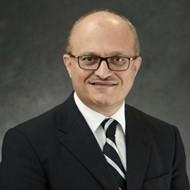Hussein A. Abdullah

Find Related People by Keyword
Instrumentation
The Robotics Institute offers a wide range of multidisciplinary research programs and facilities. These facilities include three robot arms, virtual reality platforms, microcontroller development kit sets, and a variety of sensors such as force, vision, and ultrasound. The lab also provides an extensive selection of commercial and in-house software packages, catering to both general and specific purposes. These include the Unity Real-Time Development Platform and CAD design tools.
Capabilities
In our lab, highly qualified personnel (HQP) will receive hands-on training in biomedical robotics, machine learning, assistive robotic technologies, app development, and advanced mechatronic techniques. These in-demand and versatile skill sets are not only valuable across a range of industries but also highly adaptable to the evolving needs of the global economy. This comprehensive training will empower trainees with the expertise, confidence, and career security needed to thrive in a competitive job market. Moreover, equipping HQP with cutting-edge technical competencies enables them to contribute meaningfully to the Canadian innovation ecosystem and broader industrial landscape.
Education & Employment Background
Abdullah's academic journey is a testament to his dedication and expertise. He earned his bachelor's degree in engineering from the University of Technology, Baghdad, followed by an M.Sc. in Robotics and a Ph.D. in Mechatronics, Manufacturing, and Automation from the University of Glasgow, UK. His career has seen him serve in various roles, from a research associate and part-time lecturer at the University of Glasgow to an associate professor at Sultan Qaboos University, Sultanate of Oman. In 2000, he joined the University of Guelph (UOG) School of Engineering (SOE) as an associate professor, a position he held until his promotion to full professor in 2010. His international experience was further enriched when he took a two-year academic leave from the University of Guelph to serve as Vice President of Academics and Research at the Australian University in Kuwait, Kuwait.
Research Themes
Abdullah's research focuses on developing robotic systems for non-industrial applications, with core interests in 1) Therapeutic robots for rehabilitating victims with impaired upper limbs, 2) Assistive robotics devices, and 3) Exoskeleton robotics devices. He also conducted research in the fields of mechatronic systems design and advanced automation technologies.
Current Research Themes
- Rehabilitation Robotics – The work focuses on the field of building intelligent robotic systems that can provide an opportunity to improve the quality of life for people with limb disabilities or impairments caused by a severe injury or accident. Abdullah's research has led to the development of an intelligent, user-friendly therapeutic robotic system based on the anthropometry of the stroke population. The research program also investigates the design and development of an innovative functional virtual mirror therapy (VMT) system that improves treatment for upper limb partial paralysis in Acquired Brain Injury (ABI) patients. The VMT uses an immersive virtual rehabilitation environment by inducing neuroplasticity as a safe, acceptable, and comfortable method to provide mirror therapy in the upper extremities.
- Assistive Robotic Devices
- Assistive devices to support activities of daily living (ADL): This research seeks to empower individuals with upper limb impairments by employing robots to assist with daily tasks such as personal care. This includes face washing, tooth brushing, hair combing, and shaving. We worked on a detailed analysis of the contact forces exerted between humans and the tools a personal care robot manipulated during hair brushing, face wiping, and shaving. A key contribution is the force data for hair brushing, which had not been previously documented.
- Assistive feeding robot: Initial work in assistive feeding robots focused on addressing several key challenges existing robotic feeding devices face. While this research made progress, there remain several limitations and gaps that future investigations must address to advance assistive feeding technology further. Limitations include the need for a broader range of automated feeding and food acquisition tools, as current systems are restricted in their ability to handle diverse food types. Additionally, most systems that have been tested, including those in the literature, are designed to function only with specific robotic models. This limits their adaptability and widespread use.
- Smart (Internet-of-Things) Remote Door Access System for Personal Mobility: This research program aims to develop a "smart" remote door access system to enhance personal mobility. The system enables individuals to control pre-existing accessible doors through a smart device, thus reducing the need for physical contact with the door. This improves overall building accessibility and minimizes the risk of cross-contamination. The app supporting this system is compatible with iOS, Android, and Windows devices. The system is currently being tested in real-world environments, including the doors at the Town of Collingwood's library and town hall.
Highlights
- Research projects funded by industry and organizations such as the Natural Sciences and Engineering Research Council of Canada (NSERC), the National Research Council of Canada (NRC), the Ontario Ministry of Agriculture, Food and Rural Affairs (OMAFRA), and Ontario Centers of Excellence (OCE) have resulted in over 90 publications in international journals and conferences
- Member of the Professional Engineers Ontario (PEO)
- Associate Editor of the Journal of Frontiers in Robotics and AI
- External reviewers for several journals, conference manuscripts, and applications for research funding agencies
Media Coverage
2024/10/08 - How a University of Guelph app is opening doors – literally., CTV News - Kitchener at 6pm, CTV News. View more details here.